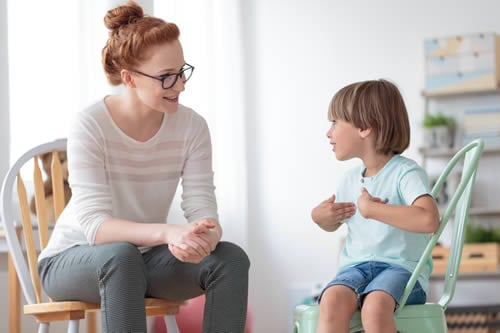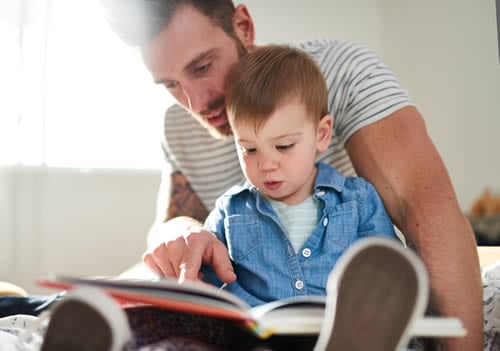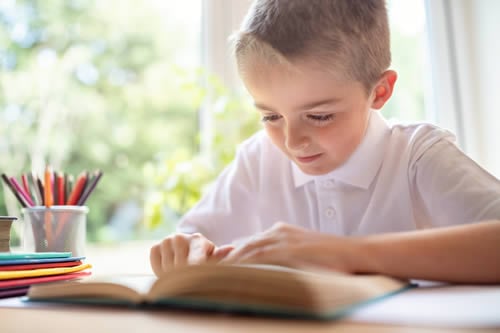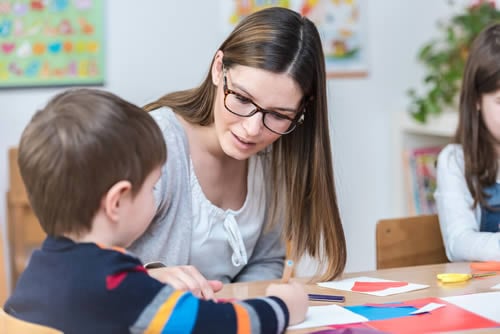Dyslexia is a neurological condition that affects a person’s ability to read, write and spell but it can also impact their ability to organise themselves, retain and process information. Unsurprisingly, being dyslexic can have an enormous impact on a child’s overall education. How can teaching staff help a child to manage their difficulties and at the same time make literacy fun?
Tutor Jessie is a qualified SEN teacher has worked as Head of Dyslexia at a mainstream secondary school and has the OCR Level 5 Diploma in an SpLD (Dyslexia) qualification. She says that a multi-sensory approach to lessons – often known as ‘VAK’ in education circles which stands for ‘visual, auditory and kinaesthetic’ – is proven to be a positive approach for dyslexic students.
“In practice, this means that if you are doing an activity that uses more than one sense, the information will be more memorable and better absorbed by the student,” she explains. “For example, they might look at images as well as hearing certain words, or take part in an activity that involves movement such as collecting five objects.”
It’s OK to Make Mistakes

It’s also essential to adopt a playful approach, she points out. Teachers and students might make a game together, say, or take it in turn to spell out silly sentences. “This alleviates pressure on the student and reduces anxiety and provides lovely opportunities for both sides to make mistakes without getting too upset about it,” Jessie points out.
“We all learn more if we’re having fun,” Jessie continues. “Teachers/tutors need to create a sense of openness, an atmosphere of ‘let’s see what happens now’ in lessons instead of a traditional lecturing approach.”
Personalised Learning Aids

Creating ‘learning tools’ that have been personalised for a student’s individual needs helps, she says. An example of this might be a check-list to remind the young person of ‘tips’ to help with reading and writing such as tracking a word with their finger or sounding a word out loud. Posters or flashcards with a word on one side and an image on the back can also ‘cement’ learning.
Donna Stevenson is also a qualified teacher who now works as a training adviser with ‘Succeed With Dyslexia’, an organisation that aims to promote worldwide positivity around learning and literacy differences. To do so they promote discussion and information-sharing, provide advice to parents and employers, run conferences – known as ‘learning festivals’ – and offer workplace training in how to support colleagues with dyslexia and other neurodiversities.
Co-operation is the Way to Support Dyslexic Students

“We understand there are challenges but we offer a new way of looking at things,” she comments. “We all want the same thing and that’s to help people with dyslexia to thrive.”
She points out that many people mistakenly believe that dyslexic children don’t enjoy learning. “And when you hear dyslexic adults share that they’ve never read a book and left education with no qualifications, it’s easy to come to the conclusion that learning is not possible. If we’re not careful, this attitude can limit the achievements, aspirations and opportunities for dyslexic youngsters.”
Activities Need to be Carefully Planned for Dyslexic Students

“Sadly, the recent findings of the Annual Literacy Survey found that 56.6% of children aged 8 – 18 years, do not enjoy reading. This is the lowest level of reading enjoyment since records began,” Donna mentions.
However, Donna agrees with Jessie that making learning inclusive and fun is the best way to ensure dyslexic students make progress. “We know that often, those with dyslexia are not incidental learners so we need to plan and structure the skills-acquisition stage,” she carries on, “ensuring it is cumulative, multi-sensory and takes a scaffolding approach, making links and teaching by analogy.”
Linking new learning to what a student already knows and understands is also ‘dyslexia-friendly’, she adds. Encouraging children to love stories and bringing books ‘alive’ through discussion can ignite a love of reading no matter what a child’s literacy abilities may be.




